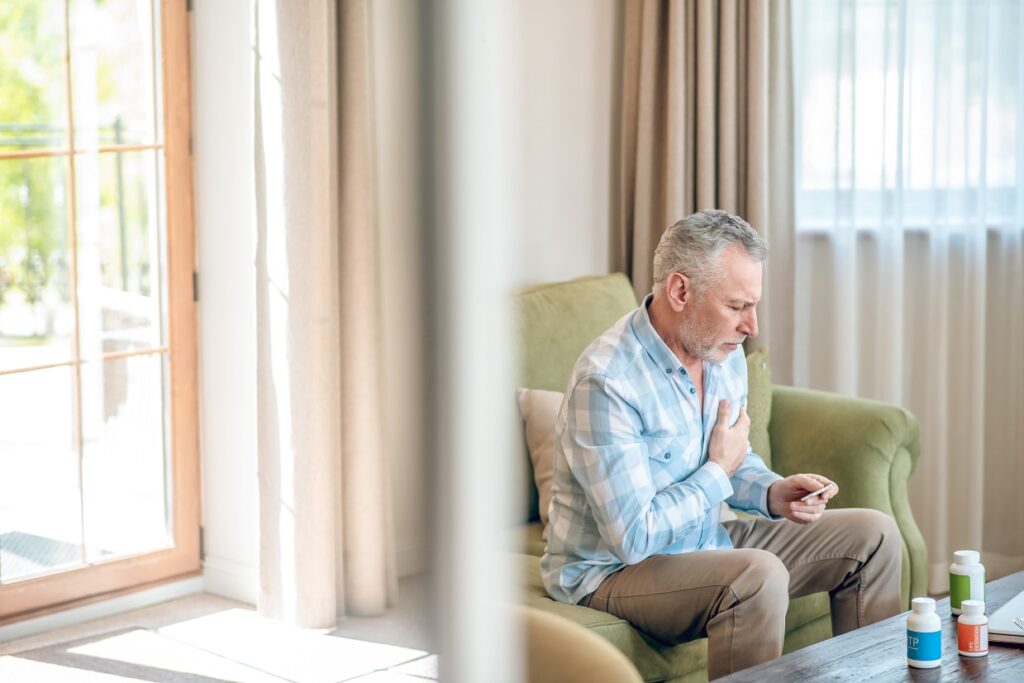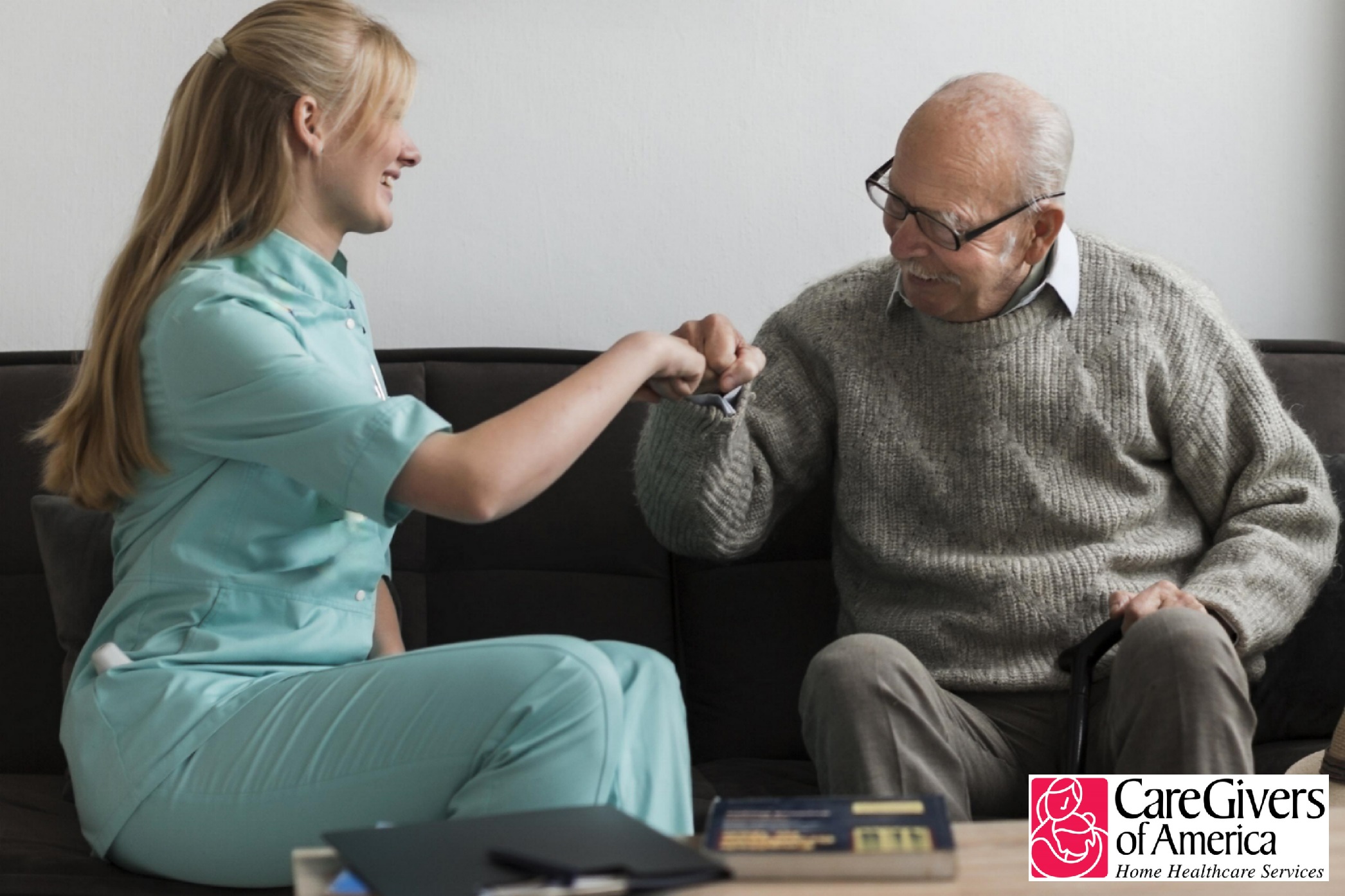Being a caregiver for a heart patient, whether as a family member or as a professional has particular demands and requires the right skillset. With our continued focus on heart healthy topics this month, we’re going to take a look at the unique challenges a caregiver faces when supporting an elder with heart disease.
Table of Contents
Is caring for a heart patient different than caring for other patients?
To answer this question, we must consider the different types of heart patients and levels of heart disease. Being a caregiver for someone who has been diagnosed with coronary artery disease may look very different than caring for a patient who has been diagnosed with heart failure.
WebMD indicates the seven types of heart disease diagnoses are:
- Coronary Artery Disease
- Heart Arrhythmias
- Heart Failure
- Heart Valve Disease
- Pericardial Disease
- Cardiomyopathy (Heart Muscle Disease)
- Congenital Heart Disease
Click here to read more about the different types of heart disease diagnoses. With each of these, depending on the stage of disease, the level of care that needs to be provided by the caregiver is indeed different.
Common caregiving skills needed to care for a heart patient
Knowledge of heart healthy diet All patients need to be consuming healthy foods, but for a heart patient, this is even more critical. A good caregiver will have a strong basic understanding of what foods are beneficial and what foods the patient should stay away from. If cooking for the patient, the caregiver should understand what methods are best in keeping the diet “heart healthy”. Read 7 Ways To Eat Heart Healthy On A Budget for more information.
Overseeing of medications A heart patient may have one, two or a plethora of medications to take on a regular basis. When there are multiple medications that need to be taken, possibly at different intervals, medication monitoring and management is important. For some tips and tricks, have a read here.
Knowing what warnings signs to look for Current heart patients are more susceptible to having heart related issues in the future. The most common symptoms to be concerned about are:
- Chest pain
- Pain that radiates into neck and arms
- Nausea / Indigestion
- Leg pain
- Feeling sweaty or clammy
- Jaw or back pain (more common in females)
- Onset of swollen ankles or feet
- Extreme fatigue

Communication with the patient’s family This doesn’t vary so much from caring for other types of patients, but can be even more important when supporting a heart patient. Keeping logs or records of symptoms or occurrences throughout the day will help you communicate clearly with the family regarding the things you notice wile caring for the patient.
Support and involvement in exercise For the patients who are able, exercise is an important factor in improving or maintaining better health. Supporting the patient to walk on a regular basis and understanding how even a patient with limited mobility can be physically active. The family doctor or medical staff involved in the patient’s care will advise on how best the patient should exercise. It’s up to the caregiver to support the patient daily, to do so.
How does caregiving for a heart patient affect the caregiver?
Caregiving for a heart patient can be rewarding but as with being a caregiver in general, there are stressed and demands that can impact the health of the caregiver:
Chronic stress. Ongoing stress and how we manage it affects our physical health. Caregivers can run higher risks of heart disease themselves, due to worry, not taking enough time for self care or exercise and poor eating habits.
TIPS:
- Rely on your support system, whether it be family, healthcare professionals or leaders in your church. Speak up when you need support.
- Practice mindfulness and other stress management coping strategies. Check out this article on mindfulness especially for caregivers.
Caregiver burnout. Caregivers run a high risk of burnout and it can be prevented.
TIPS:
- Take time off. Know when you’re feeling burned out and take a bit of time of for self-care.
- Be patient with yourself. We’re often our own worst critic and that doesn’t do us any favors.
- Get some exercise. Many caregivers have physical jobs, so “exercise” doesn’t sound that appealing. But when we exercise with intention, especially working our hearts (during cardio) it has benefits that a “physical job” doesn’t. Benefits like stress reduction, hearts strengthening and appropriate weight management.
- Eat simple, but healthy meals. When we don’t make time for ourselves, our diet can take a hit. We eat pre-packaged, convenience foods and poor diet has been directly linked to heart health.
Read 3 Critical Things to Know About Caregiver Burnout for more detailed information on how you can take better care of yourself as a caregiver.
Wrap Up
Caregiving for heart patients does indeed look a little differently than caring for other patients. But many of the risks and rewards for the caregivers are similar. You’re making a profound difference in someone’s life. And we all know that feels good.
~ ~ ~
Do you have questions about how you can better support your loved one while they age in place in South Florida or regarding homecare in general? Please contact CareGivers of America here: Contact or call us toll free: 800-342-4197
To join our amazing mailing list where you’ll receive special content, click here.
*No information in this article is to be taken as advice, medical or otherwise. This post is not sponsored, but may contain external links to websites, articles or product examples. External links are used for example or refence purposes only and these links do not indicate specific product or website endorsement by CareGivers of America.



